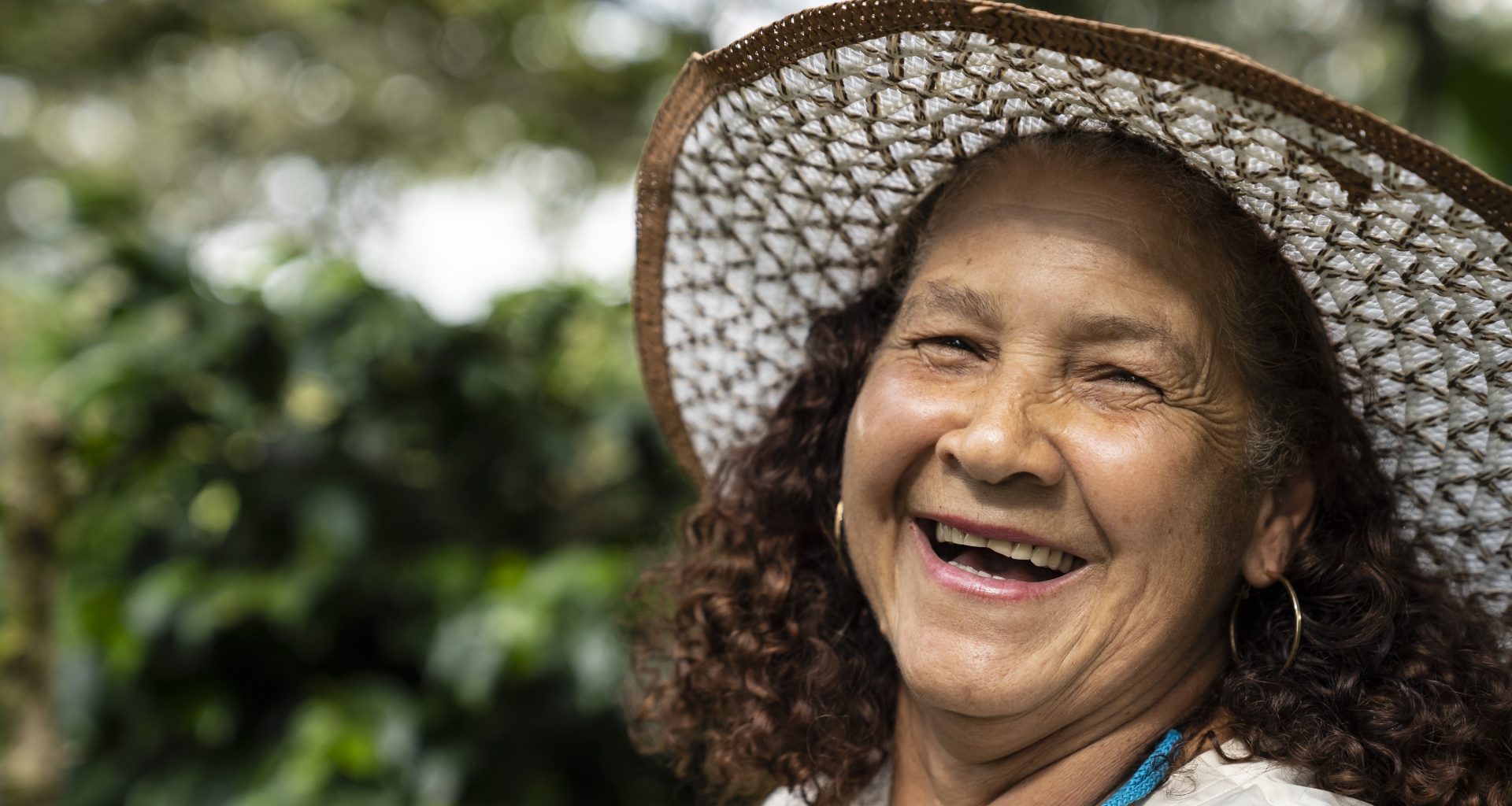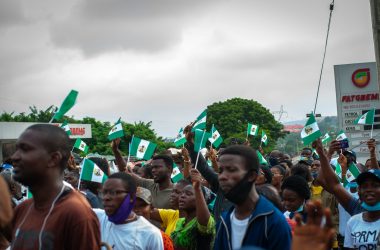Buying coffee is a daily ritual for many, but how often do we think about the story behind our favourite flat white or Americano? There’s a story behind the aromatic roast that we raise to our lips, Charlie and Edd Partridge will tell you, and it could be one of gender equality and sustainability.
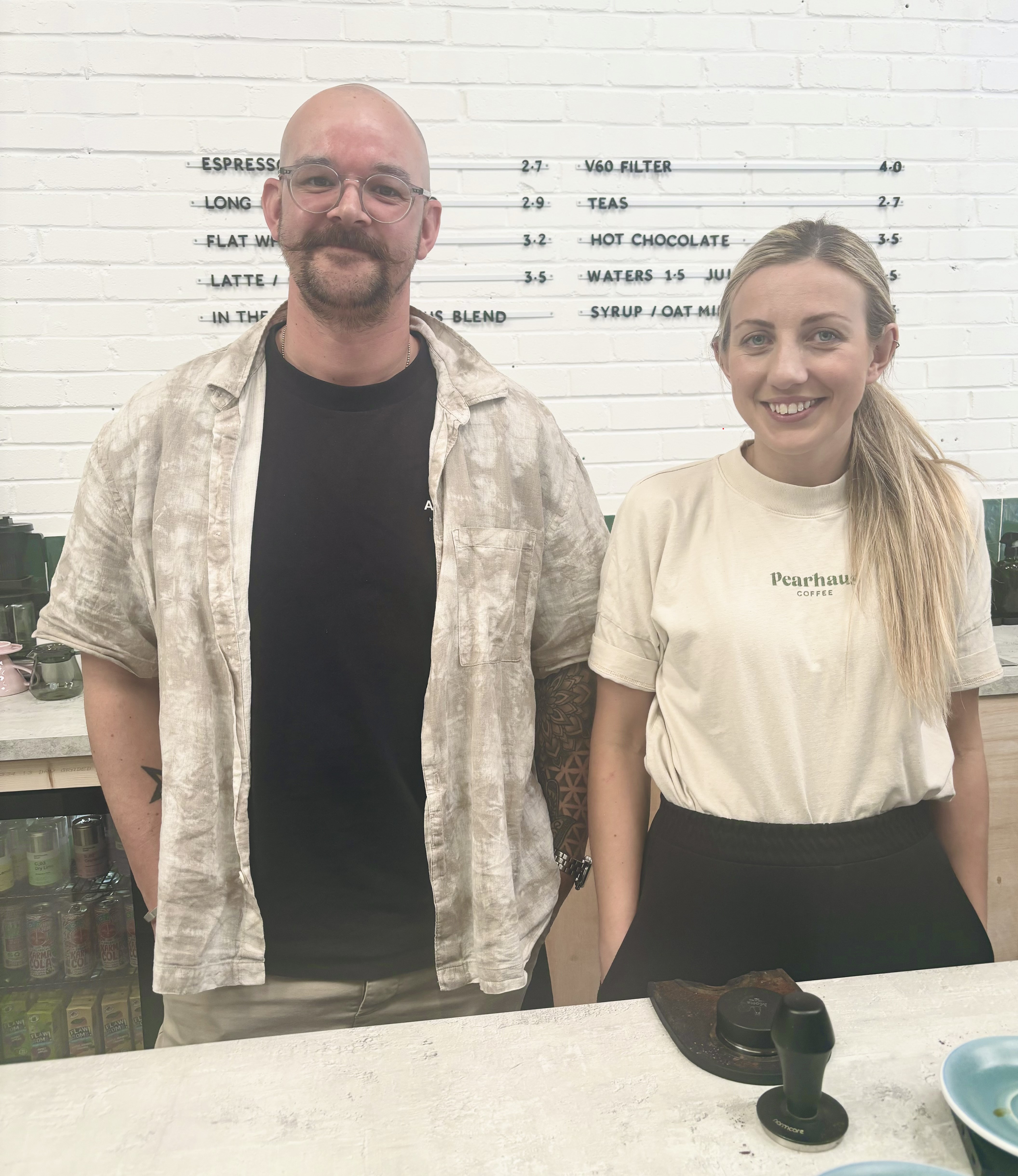
Charlie and Edd, 31 and 35 respectively, are the founders of Pearhaus coffee, based in Poole, Dorset. They have been operating since December 2020. The couple roasts their specialty coffee in-house and supplies it to local businesses. They also serve it their on-site coffee shop.
Their main coffee partner is Sucafina, which, according to Edd, aligns with their company goals and values. ‘’We make sure that money is going back into our origin projects and that they support the growth of the local coffee communities,’’ he said.
The Colombian coffee they import is from a farm in Huila and is produced by fifteen female-owned farms. The workers are part of a women’s program called Asobombo which promotes gender opportunity and equality for females in the Colombian coffee industry.
‘’Buying that cup of coffee end to end of the journey has started with the women actually earning a wage and actually being paid fairly,’’ Charlie said. She also explained how the price of coffee could be an indication that workers aren’t getting paid sufficiently. ‘’Sometimes people say our coffee is a high price. I don’t want to pay that price. I can go and get a bag for ten pounds, and we’re thinking that’s fine, but how much is that farmer being paid.’’
She spoke about the importance of research when choosing a coffee brand. She said: ‘’If you’re going to go out for coffee and you are somebody who wants to be sustainable, make more of a conscious effort of where you might go and maybe speak to their roaster to find out more about it.’’
‘’It’s about the whole supply chain and making sure that we and the cafés are not the only ones benefiting.’’ Ed added.
Warren Edwards, who is 31, and James Roper, who is 32, own The Hutch, an independent coffee shop in Westbourne, Bournemouth. They wanted a coffee brand that made an active difference to the lives of others, so Pearhaus was an obvious choice for them.
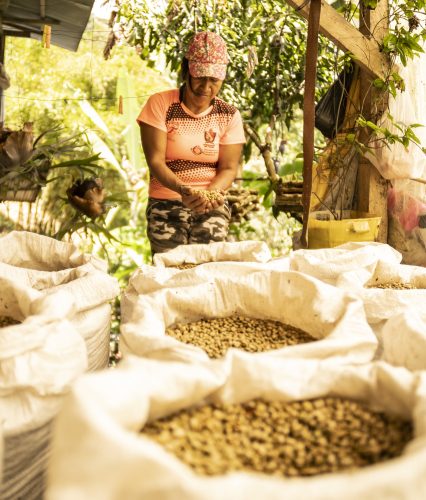
‘’I really felt it was important to support a local roaster who shared the same values as us,’’ Warren said on his decision to partner with Edd and Charlie.
James agreed: ‘’They told us about their single-origin Columbian coffee that was from a small, independent women’s only farm, with just fifteen females working there, we were sold. We will continue to use our coffee that supports women’s rights, supports women in work, and gives a fair price and great working conditions.’’
Colombia is a global leader in the production of coffee, and women are essential to the industry as they represent more than half of Colombia’s coffee workers. Lucia Bawot author of We Belong: An Anthology of Colombian Women Coffee Farmers was born and raised in Colombia and has been working in the coffee industry for the past decade. Bawot has also travelled around Colombia and visited numerous women working on coffee farms, she has heard many of their stories and hardships.
‘’A lot of the females don’t get paid because they’re the wives of the farmers that appear in the title of the farm, so they’re not getting the money in their hands,’’ Bawot said.
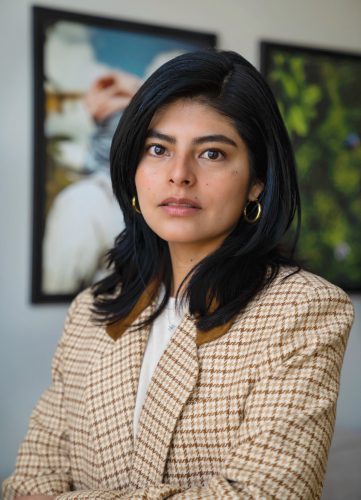
Women make up 70 per cent of the workforce in the global coffee producing industry. Yet only around 20 per cent of coffee farms are run by women, according to a recent International Coffee Organisation (ICO) study. Bawot attributes this to a variety of factors, including cultural norms. ‘’You don’t see farms being fully operated and run by women because they don’t own the land,’’ she said.
‘’In Colombia men have the power, and almost everything in the country is run by men, and they are the ones doing everything,’’ she said.
Bawot also blames gender stereotypes, such as men being seen as physically stronger and therefore more capable of running a farm. ‘’Farming is seen as physical labour, and for men that are strong, I think that’s why [women] are way behind men when it comes to the coffee industry,” she said.
Bawot acknowledged the growing recognition of coffee produced in Colombia by female-only farmers. ‘’We’re seeing more companies supporting projects of women coffee farmers paying more for the coffee, and ultimately that’s good,’’ she said. Times are changing according to her, she added: ‘’There are a lot of programs trying to help women to own land even if they start with a small parcel of it.’’





